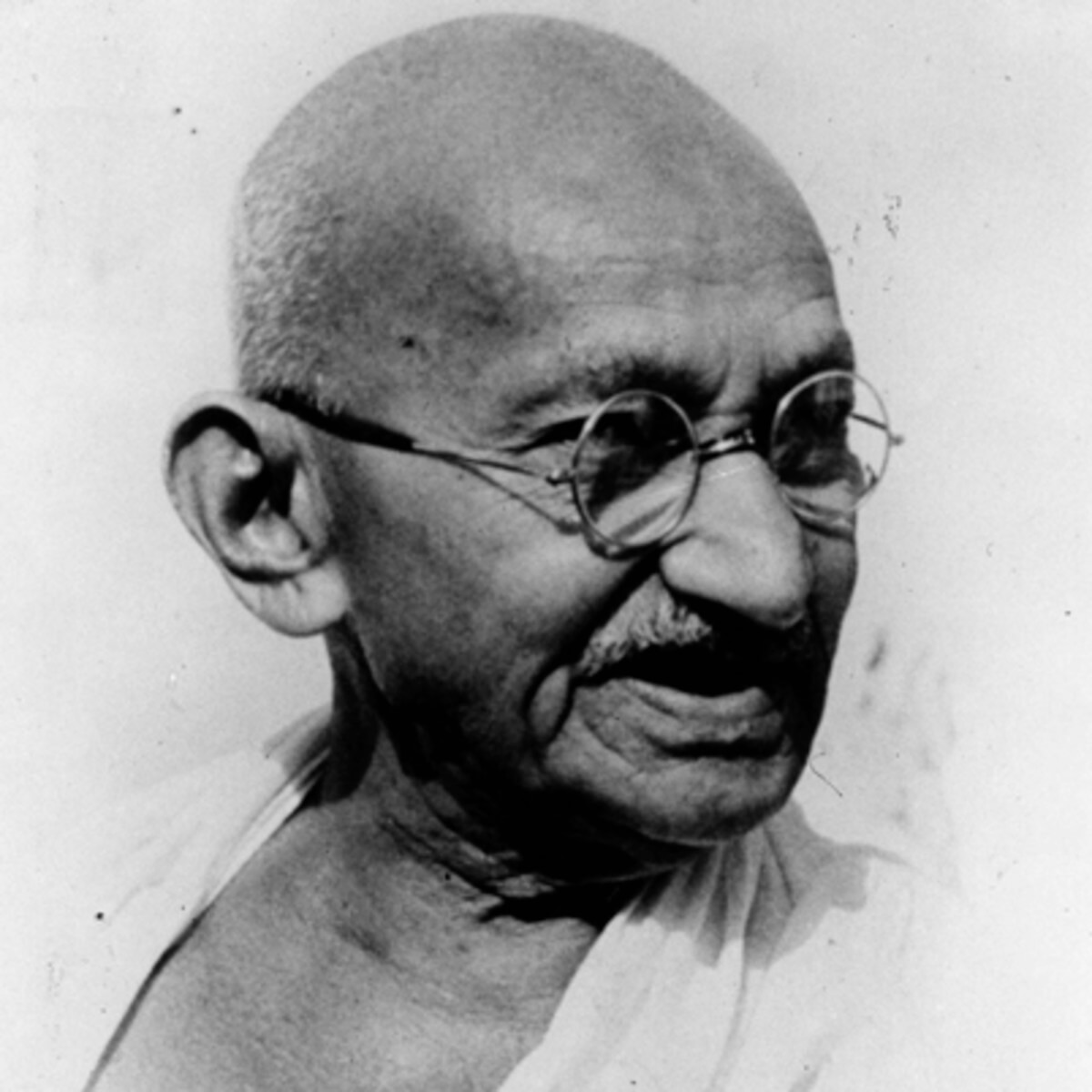
by Melissa Zhou
The title of one of Sigmund Freud’s most innovative works, Civilisation and Its Discontents, conveys to the reader that the modern world is subject to an atmosphere of misery—the development of civilisation has shed a light upon the human being as a creature whose natural faculties have been sublimated under the greater, more pervasive conditions of the modern era. In glancing momentarily towards the text, there appears before our eyes the peculiar forces for which the development of society is held accountable—such as the bipartite division of the sexes; the establishment of cleanliness through the degradation of the libido; the self-induced internalisation of the aggressive principle—which throws the modern individual under the strained politics of modern civilisation. This worldview on the human condition, as dolorous as it is, is similarly found in the depths of modern literature—rising up from the stagnation and outdatedness of the British Empire, it lingers as a form of a colonial horror in Woolf’s Mrs. Dalloway, as an attitude of narcissism in which the rush and competitiveness of modern society is preserved. Turning away from this atmosphere of “discontent”, which is prevalent in both psychoanalysis and twentieth-century literature, it is, however, remarkable to explore the magnificence of the human mind—namely, that there is before us perhaps a vast intellectual dreamscape; a source of escape into the whirlpool of mental life, bound to a shimmering flask of the intellect for which we must seek to retrieve. As such, we can not deny that there are intellect-based methods of contending with the displeasures of the world—which, as depicted in Proust’s The Guermantes Way, serve their place as secret entryways towards a lifetime of happiness, in which the psyche is paramount and pleasure maximised. Gathering the debris of discontent from the corners of history, it is through the agency of modern literature that a looking-glass is held up to the human condition—treading along the interplay between the modern individual and the conditions to which they are subject, it is substantial to recognise the bridge between psychoanalysis and twentieth-century literature; and how beneath the flux of modernity runs the dashing stream of human consciousness, flashing light and dark with the mind’s psychology.
Absorbed in the mind’s universe, it would be incumbent upon us to glance over the framework of the psyche before analysing its implications in the broader realm of literature. Shifting our gaze towards Civilisation and Its Discontents, it is evident that the nature of the mind is understood by drawing the people apart from one another; by perceiving them as entities shaped by the cosmical regularities of the psyche, compelled into motion by the gears of their ‘internal, psychical processes’ (Freud, 49). In this particular realm, where the mind is predominant, it is, of course, the tripartite division of the psyche which matters—namely, the superego as the domain of self-criticism shaped by social standards; the aggressive libido-driven nature of the id; the ego as the adjudicator between the desires of the psyche and external demands—which serve their place in the text towards providing the psychological impetus to human behaviour. And while there is a strain imposed upon human libidinal desires by the framework of societal expectation—namely, the suppression of the id by the superego—there is perhaps a faculty of the intellect that is capable of contributing to a psychological dreamland against the miserable backdrop of the modern world.
To distinguish the Freudian prospect of happiness from the gloominess of modern civilisation, we must first define what exactly it is which has contributed to the atmosphere of discontent in Civilisation and Its Discontents. We must begin at the foundation of human nature, when Freud defines the recognition of love as ‘one of the foundations of civilisation’, and brings light to the concept of genital pleasure as a cornerstone of human life, as it has ‘provided [man] with the prototype of all happiness’, compelling him to ‘to seek the satisfaction of happiness in his life among the path of sexual relations and … make genital eroticism the central point in his life’ (80). The presence of genital love bears a significant place in the course of societal development—after all, it is in the nature of the man to expose themselves to their object of love, and to be subject to ‘extreme suffering’ (81) if they should be rejected by that object. And as much as the temptation of physical love is deemed to be unwise by those rapacious philosophers, those avid polymaths who have peered into every corner of the metaphysical mind, there are indeed ‘far-reaching mental changes’ that must occur to make the suppression of libidinal desires possible. Freud takes this concept of genital love and extends it by defining the human as ‘an animal organism with an unmistakably bisexual disposition’ (87), and that while the two-fold conventions of masculinity and femininity are steadily uprooted in society, it is not in the nature of psychology to readily ascribe an individual as needing to belong to either chamber of sexual identity. As such, in the Freudian view, the natural hermaphroditic state of the human is particularly troubled by the conventions of present-day civilisation, which holds the view of relationships being ‘on the basis of a solitary, indissoluble bond between one man and one woman’, and how ‘it does not like sexuality as a source of pleasure in its own right … it is only prepared to tolerate it because there is so far no substitute for it as a means of propagating the human race’ (86). We can neither deny the presence of anal eroticism, having paved the way to civilisation as a form of ‘organic repression’ (79)—here, the slow and meticulous growth of human development has hastened itself towards the future through the degradation of excreta as something ‘worthless, disgusting, abhorrent and abominable’ (78), serving its place as a responsible factor towards the sublimation of natural processes into orderliness and cleanliness. From the standpoint of these causes, it is evident that a ‘man’s natural aggressive instinct’ is opposed to this ‘programme of civilisation’ (111), and, being surrounded by societal restrictions, becomes agonisingly ‘introjected, internalised … directed towards his own ego’ (114). The Freudian theory of discontent has presented to us an image of the modern man as a victim of present-day society—and that while the human is caged and penned within societal conventions, in which natural processes are restrained and aggressiveness is self-inflicted, it is significant to realise that the mind’s psychology is in its nature flowing, half-transparent, and likely hermaphroditic—and that civilisation is an artificial project which runs against the natural dispositions of the human mind.
The discontent of modern civilisation, as idiosyncratic as it may seem, is not unique to the Freudian theory—for if we sift through the era of the twentieth-century, and examine, for a moment, the scenes of desolation presented to us by the theatre of modernism, there arises a source of misery; a shadow of doom beneath the depths of literature, from which repression is inevitable and unhappiness derived. For Virginia Woolf, the decadence of civilisation is given its reality through the British social system in Mrs. Dalloway—most notably, through [1] William Bradshaw’s theory of “Proportion” to imperial power in colonial regions, and of its implications in the realm of private relationships. As opposed to Joseph Conrad’s Heart of Darkness, for instance, in which “African cannibals” are blamed for [2] Kurtz’ corruption, and evilness is irrevocably associated with the “primitive”, Woolf proposes in Mrs. Dalloway that it is not ‘primitive Africa that drives the European colonialist to madness; rather, neurosis seems an integral part of the system itself’ (Kalkhove, 41), moreover, as a byproduct of the colonialists who have readily ‘spread their colonial ideology to colonial regions’ (41). Unalike the Freudian proposal in regards to decadence being generated by the unfortunate repression of the id, she presents a viewpoint of modern discontent based upon the sustained “fantasies of empire”—upon the narcissistic horror of a colonialist ‘giv[ing] his own ideology an almost holy importance’ (42). Such a feat is first channelled through Mrs. Dalloway in the three-quarters of an hour presented by Bradshaw to the psychiatric treatment of Rezia‘s suicidal husband, Septimus Warren, when Bradshaw reveals that:
Health we must have; and health is proportion; so that when a man comes into your room and says he is Christ (a common delusion), and has a message, as they mostly have, and threatens, as you often do, to kill himself, you invoke proportion; order rest in bed; rest in solitude; silence and rest; rest without friends; without books; without messages; six month’s rest; until a man who went in weighing seven stone six comes out weighing twelve (Mrs. Dalloway, 52).
The term “proportion” in this passage serves its place not only as a remedy for Septimus Warren’s ego-infused mania, but to reveal a parallel sense of ‘narcissism and delusions of grandeur’ (42) in the attitude of his very own caretaker—of Bradshaw himself. As such, we can not deny that ‘imperialism permeates all levels of society’ (43), as the ‘delusion of imperial power’ (78) is embodied on both ends of the spectrum in the psychiatrist-patient relationship. The pervasive dangerousness of Bradshaw’s colonialist attitude is reversingly channelled through Septimus when he feels ‘as if some horror had come almost to the surface and was about to burst into flames’ (Mrs. Dalloway, 7), and ruminates over his unconformity in the midst of the cityscape: ‘It is I who am blocking the way’, he anxiously observes, ‘Was he not being looked at and pointed at; was he not weighted there, rooted to the pavement, for a purpose?’ (Mrs. Dalloway, 7)—this sense of horror, being as insufferable as it is, fundamentally depicts that ‘he [has become] a victim of [the] sovereign power embodied in Bradshaw’ (44). This perpetual dissatisfaction, preserved within the power-obsessive hierarchy of people which we call “civilisation”, is a manifestation of anxiety from those under the higher strata of their “colonial superiors”. It is this cycle of triumph and loss; this meaningless, but desirable strive towards glory, from which the inescapable rush and competitiveness of modern society is given its existence. This branch of “colonial stamina” is further extended to Clarissa Dalloway’s insight into the connection between ‘imperial horror [and] the regulation of private experience’ (44), as a source of unease which penetrates the sphere of her private interactions. When Sally Seton ‘kissed her on the lips’, which Clarissa describes as something treasure-like, paradisiacal, and ‘infinitely precious’ (Mrs. Dalloway, 39), the colonial figure is readily embodied by Peter Walsh, who asks a[3] question and thereby interrupts her “private moment”. Analogous to Bradshaw, Peter becomes an ‘unconscious agent of power’, who uses his colonial attitude to romanticise his predominance, hegemonising the domain of queer relationships; and, posing as a god before the two women, imagines himself as ‘an adventurer, reckless … swift, daring, indeed’ (Mrs. Dalloway, 27). Presented with the cycle of self-serving narcissism passed on between Bradshaw and Septimus, as well as Peter Walsh’s “imperial intrusion” into the moment of intimacy between Clarissa and Sally, we are at no fault for determining that there is, indeed, an egotistical attitude that has knocked the human condition away from its favourable state of being—and this time, instead of the repressed libido or corrupt primitivism, the human is driven into this modern “make-belief” system of society, in which the self is bound to the conceitedness of the social system, and the “anxieties of the modern age” are diagnosed to be a pathology of the colonialist’s civilization.
Presented with the overlapping jurisdiction of modern oppressive rituals, we can not deny the dire, limited circumstances of the modern human—but if we cast our eyes towards the scope of the mind’s intellect, there is a luminous halo which arises, singularly, as a source of escape from the mundanity of contemporary civilisation. Perhaps then, above all scenes of desolation, there is a spark of hope that we have yet to discover. After all, the convoluted structure of the mind admits ‘a whole number of other influences’ (47), each of which contribute to a spell of happiness against the limitations of the external world. Freud deepens into this theory by revealing, above all, that one may also ‘hope to be freed from a part of one’s suffering by influencing the instinctual impulses’ (47). We are, perhaps, at no harm in selecting this as our primary source of pleasure—for while part of the human being is physical, carnal, and bound to the conditions of the physical body, this is a method which strives to slaughter the instincts, to gain mastery of the ‘internal sources of our needs’ (47). This form of mental governance—this relentless controlling of the instinctual faculties, pertains to a jurisdiction of the ‘higher psychical agencies’ associated with the ‘reality principle’ (47). What is perhaps interconnected with this method, and yet invariably more refined, is another technique in which instinctual aims are shifted in ‘such a way that can not come up against frustration from the external world’ (48). The worldview here, Freud claims, is that
one gains the most if one can sufficiently heighten the yield of pleasure from the sources of psychical and intellectual work. When that is so, fate can do little against one. A satisfaction of this kind, such as an artist’s joy in creating, in giving his phantasies body, or a scientist’s in solving problems or discovering truths, has a special quality which we shall certainly one day be able to characterise in metapsychological terms (48).
Being dependent upon the autonomy of the individual, this method contends with the world through the subtle trance and manipulation of the mental faculties; through the exaltation of the mind via intellectual activity. The current of life, after all, drifts indefatigably out into the world—it is only those with passion who will find themselves undergoing a process of intellectual transcendence—to conduct their minds in such a way which allows them to experience a form of happiness through the production of art. And although the yielding of happiness through sources of artistic creation is ‘only accessible to only a few people’, as it surmises the ‘possession of special dispositions and gifts’ (49), the profound satisfaction and source of escape that is derived remains nonetheless to be an overpowering, transcendental source of pleasure; a psychical method of evading the agonising trivialities of the modern world.
Immersed in the extraordinary revenues of the human mind, we are without doubt compelled to explore the intellect’s universe—and, provided with the basis of psychical work, it is through the satisfaction found in the mind’s capabilities which should justify our journey into the other-worldliness of the psyche. This time, the connection with reality is ‘further loosened’ (49), and as ‘satisfaction is obtained’ from illusions, the ‘life of the imagination’ is given its prominence through the phantasy in the ‘enjoyment of works of art’, which, ‘by the agency of the artist, is made accessible even to those who are not themselves creative’ (50). The prominence of art in this particular pleasure-finding method can be attributed to the intense exaltation which emerges on the part of the ‘mild narcosis’ (50) of its beauty, and the fantastical dream-like nature of imagination which dazzles the mind under the spell of its consolation. As the enjoyment of art and works of beauty can yet only ‘bring a transient withdrawal from the pressure of vital needs’ (50), there is another method of philosophy, which ‘regards reality as the sole enemy and as the source of all suffering, with which it is impossible to live, so that one must break off all relations with it if one is to be in any way happy’ (50). The individual engaged with such method of pleasure may at first appear, before our sensitive and well-read eyes, to be a rather implausible escape from civilisation—however, it is in fact temptingly powerful when one realises, that in the midst of solitude, they can ‘try to re-create the world, [and] to build up in its stead another world[,] in which its most unbearable features are eliminated and replaced by others that are in conformity with one’s own wishes’ (51). As such, having explored the other-worldliness of artistic self-expression, the psyche has once again presented to us a byway towards the realm of pleasure—this time, through the re-creation of a world of one’s own.
To further extend on the “divine gloriousness” of the intellect’s universe would, inevitably, draw us towards its causes and effects in the domain of intellectual mass-manipulation—being a relic of the divine, such a philosophy of the intellect’s universe is certainly to be found in the literature of Marcel Proust. As a keen proponent of the rarities thrown up by the psyche, the theme of his work is fuelled with a soporific inclination towards the divine; it is modelled upon the possibility of capsizing a moment of chaos, and replacing it with the greater, more glorious agencies of the intellect. To understand the relationship between unpleasure and the possibility of psychical escape, however, we must first remind ourselves that modern discontent is prevalent in every corner of the human condition—that the Freudian “death drive” theory, drawing on the restrained libido, indicates that this restraint is liable to transforming into an ‘instinct of aggressiveness’ (106) which exacerbates self-destruction. The powerfulness of art, as an internal process which runs against this movement of “destruction”, is conveyed by[4] Deleuze and Guaratti in What is Philosophy, who have extracted, from the depths of Proustian literature, that
the painter does not paint on an empty canvas, and neither does the writer write on a blank page; but the page or canvas is already so covered with pre-existing, pre-established clichés that it is first necessary to erase, to clean, to flatten, even to shred, so as to let in a breath of air from the chaos that brings us the vision (Deleuze, 204).
Deleuze’s theoretical standpoint on art, which essentially defines creation as a ‘struggle against chaos’ (McLaughlan, 49), posits that artistic genius is a reiteration of trauma; and, as ‘destruction must prefigure creation’ (49), proposes that the strive towards artistic creation is driven by the very act of destructiveness found in the Freudian death drive theory. But as we will examine in Proust’s The Guermantes Way, this “destruction-based unpleasantness” is followed by and therefore evaded through the transformative powers of the mind’s intellect—accordingly, the effect of such a theory takes place in a passage set in the backroom of a restaurant, where the many-faceted nature of the mind is presented with an endless vista of its own substance before a mirror. Gazing into this mirror, Proust’s narrator singularly understands that this endless reflection is a phenomenon in which the “death drive” is momentarily exposed:
I caught sight of him, a hideous stranger, staring at me. The joy of intoxication was stronger than my disgust; from gaiety or bravado, I gave him a smile which he returned. And I felt myself so much under the ephemeral and potent sway of the minute in which our sensations are so strong, that I am not sure whether my sole regret was not at the thought that the hideous self whom I had just caught sight of in the glass was perhaps on his last legs, and that I should never meet that stranger again for the rest of my life (The Guermantes Way, 192-3).
Such a passage, modelled upon a reiteration of the self as ‘a hideous stranger’, functions as a moment of ‘symbolic death’ which, overturned by the fantasy of the moment, is unexpectedly coped with jouissance. It offers new possibilities of ‘transcending the symbolic order and experiencing life through a ghostly[5] Ideal-I’—in fact, the ‘narrator’s initial impulse to psychically disavow that which is perceived as dangerous is immediately overcome by the quota of pleasure that this encounter with the spectral image returns’ (50). Furthermore, it would not be inopportune to mention that a sense of “colonial” power, in the sway of this moment, was privately transferred away from the world and into the grasp of the narrator; the gained pleasure from this scene, in fact, comes from a vague imposition of one’s mental order upon the world. The narrator’s “gaiety” from having disregarded the spectacle of chaos affirms the strength of his mental faculties, revealing that there is a wellspring of power in his psyche which had overturned the destructiveness of the moment. Expanding on our interpretation of this scene, we can not deny that the character can therefore ‘marshall this manifestation of the death drive by simply altering the angle in which he stands in front of the mirror, so [that] he is … able to collapse the atomised, spectral other, back in on itself, and unify this threatening multiplicity’ (50). The ability of the individual to transcend the destructiveness of a moment—to turn the chaotic into the supreme, is wholly dependent upon the fantastical, all-encompassing scope of their intellect. As such, the death drive is essentially ‘regulated through the genius of the artist and his use of repetition’; and, ‘to the production of art, … such sensory excitation and the affective opportunities’ are, undoubtedly, ‘celebrated by Proust in his novel’ (51). Presented with the intellect-based sources of escape in Proust’s The Guermantes Way, we can not deny that there is a plateau of inventiveness to which the suffering mind is aimed; and that, above all, the “destructiveness” of modern life, twisting and channelling down the rivulet of daily experiences, is an obstacle which can be psychically evaded.
With the twentieth-century put into perspective, it would be incumbent upon us to recognise this atmosphere of discontent which is so prevalent at this age of human history—such an attitude of despair remains to be the figurehead of contemporary literary scholarship. After all, the “anxieties” of the modern age appear before our eyes in the form of an oppressive ritual in which the natural, libidinal urges of the human being are battered by the politics of societal convention, and the hierarchy of civilisation, as was presented in Mrs. Dalloway, is in itself dominated by a source of “narcissistic imperialism”, under which the modern individual finds themselves suffocating, and driven towards a ravenous search for glory, only to fall back into the morbid waves of modern life. The source of escape, being limited to uncommon and extraordinary individuals, would require a separation from the world, and a deep-rooted attachment to the universe of the psyche—it would require a gifted, psyche-driven ability towards manipulating the subtle trance of the intellectual faculties. As in the atomised and parallax-based nature of mental life in Proust’s The Guermantes Way, there is, accordingly, a narrow quota of escape found within the infinite frames of the mind—such a proposal coalesces with the Freudian theory on the ‘yield[ing] of pleasure’ from the ‘sources of psychical and intellectual work’ (48), and on the usage of the highest psychical agencies so as be immersed in the fine meticulousness of artistic creation. Above all, the interconnection between these texts serves its place to embody the conditions of modern civilisation, and to depict the system in which the Everyman is confined; to uncover the godhood of the mind; to illustrate how modernism and psychoanalysis are miraculously intertwined, pieced together into a unified worldview—and the ways in which the human condition is a generating force to the sea of modern literature.
Endnotes
[1] An upper-class English psychiatrist in Mrs. Dalloway, who preaches Proportion and Conversion; in this context, he serves his place as a scientific, manipulative authority figure to his patients, rather than a kind caretaker.
[2] A European man sent to Africa as an ivory trader in Heart of Darkness. He is portrayed to have been corrupted during his stay in the jungles, negatively changed by the “brutal savageness” of the natives.
[3] “Star-gazing?”, said Peter. (Mrs. Dalloway, 18)
[4] Gilles Deleuze, a French philosopher, and Félix Guaratti, a French psychoanalyst, frequently co-authored books. What is Philosophy would be one of them.
[5] The Freudian Ego ideal.
Work Cited
Freud Sigmund, Civilisation and Its Discontents. Translated by James Stratchey, W.W. Norton & Company, 1961.
Kalkhove Marieke, Colonial Anxiety and Primitivism in Modernist Fiction: Woolf, Freud, Forster, Stein. ProQuest Dissertations Publishing, 2013. https://www.proquest.com/docview/2529344850?accountid=14656&sourcetype=Dissertations%20&%20Theses
McLaughlan Robbie, The Trauma of Form: Death Drive as Affect in À la recherche du temps perdu. Cambridge University Press, 2017. https://www.cambridge.org/core/books/modernism-and-affect/trauma-of-form-death-drive-as-affect-in-a-la-recherche-du-temps-perdu/CF342A513F27D66FBBFF64B3CDAE70FD
Proust Marcel, The Guermantes Way, Translated by C. K. Scott-Moncrieff and Terence Kilmartin, revised by D. J. Enright, London: Vintage, vol. 2/6.
Woolf Virginia, Mrs. Dalloway. Benediction Classics, Oxford, 2017.







